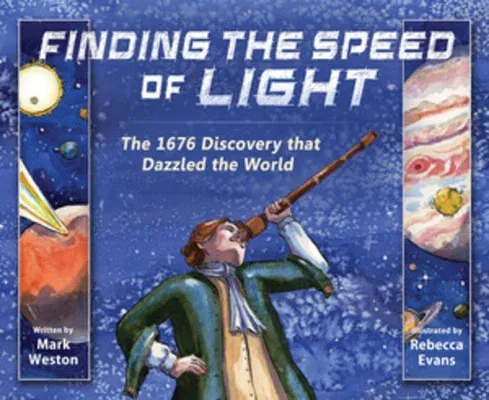Mark Weston
(Author)Finding the Speed of Light: The 1676 Discovery That Dazzled the WorldHardcover, 12 March 2019

Qty
1
Turbo
Ships in 2 - 3 days
In Stock
Free Delivery
Cash on Delivery
15 Days
Free Returns
Secure Checkout

Reading Age
Ages: 9-12
Grade Levels
4-7
Part of Series
History Makers
Print Length
32 pages
Language
English
Publisher
Tilbury House Publishers
Date Published
12 Mar 2019
ISBN-10
0884485455
ISBN-13
9780884485452
Description
Product Details
Audience:
Ages: 9-12
Author:
Book Format:
Hardcover
Country of Origin:
US
Date Published:
12 March 2019
Dimensions:
23.11 x
28.45 x
1.02 cm
Educational Level:
Grade Levels: 4-7
Illustrator:
ISBN-10:
0884485455
ISBN-13:
9780884485452
Language:
English
Pages:
32
Publisher:
Series:
Weight:
498.95 gm